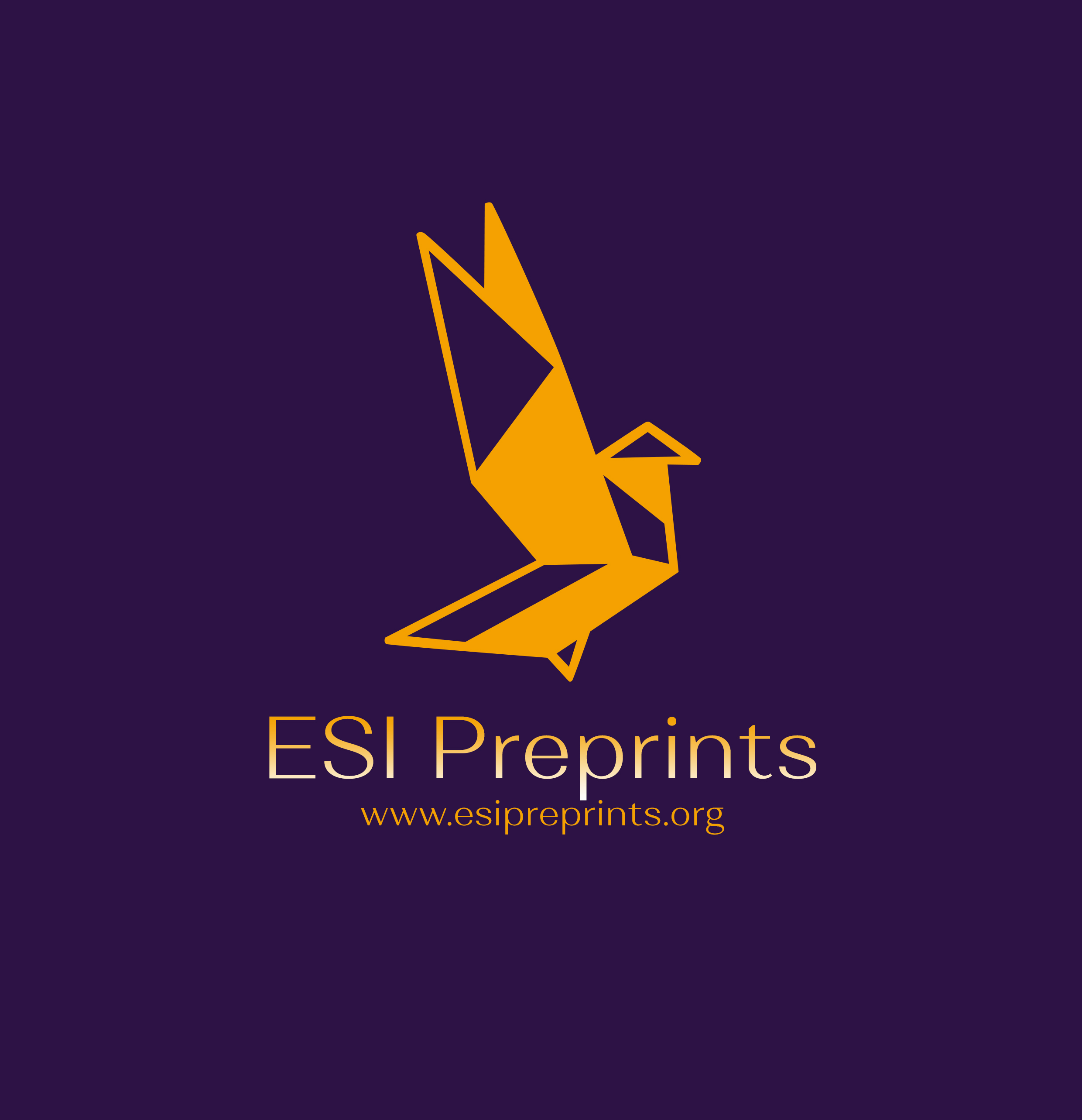Discovering the best practices of Total Quality Management influencing performance in the Moroccan hospitality industry
Abstract
This study aims to investigate the relationship between Total Quality Management and hotel performance, with a particular focus on identifying best practices from the European Foundation for Quality Management that could contribute to enhancing business results within the hospitality sector. A quantitative confirmatory study was conducted using a five-point Likert scale questionnaire, administered to 93 Moroccan hotels, targeting senior managers with a quality management background. The Partial Least Squares Structural Equation Modeling (PLS-SEM) technique was used to analyze the collected data. The findings indicate that Total Quality Management is a driver of both financial and customer performance. Similarly, strategy and processes are the most important enablers in fostering hotel performance. This research offers a distinctive empirical contribution by examining how Moroccan hotels embrace a significant managerial approach to enhance their performance. Furthermore, the study focuses on a widely recognized model for business excellence, providing a targeted and in-depth analysis of how specific practices within this framework can impact hotel performance.
Downloads
References
2. Amin, M., Aldakhil, A. M., Wu, C., Rezaei, S., & Cobanoglu, C. (2017). The structural relationship between TQM, employee satisfaction and hotel performance. International Journal of Contemporary Hospitality Management, 29(4), 1256-1278.
3. Anderson, J. C., Rungtusanatham, M., Schroeder, R. G., & Devaraj, S. (1995). A path analytic model of a theory of quality management underlying the Deming management method: preliminary empirical findings. Decision sciences, 26(5), 637-658.
4. Beer, M. (2003). Why total quality management programs do not persist: the role of management quality and implications for leading a TQM transformation. Decision Sciences, 34(4), 623-642.
5. Benavides-Velasco, C. A., Quintana-García, C., & Marchante-Lara, M. (2014). Total quality management, corporate social responsibility and performance in the hotel industry. International Journal of Hospitality Management, 41, 77-87.
6. Bouranta, N., Psomas, E. L., & Pantouvakis, A. (2017). Identifying the critical determinants of TQM and their impact on company performance: Evidence from the hotel industry of Greece. The TQM Journal, 29(1), 147-166.
7. Camisón, C. (1996). Total quality management in hospitality: an application of the EFQM model. Tourism Management, 17(3), 191-201.
8. Chaher, D., & Lakhal, L. (2024). The impact of TQM on financial and non-financial performance: the mediating role of corporate social responsibility. The TQM Journal.
9. Cheung, M. F., & Wong, C. S. (2011). Transformational leadership, leader support, and employee creativity. Leadership & Organization Development Journal, 32(7), 656-672.
10. Claver‐Cortés, E., Pereira‐Moliner, J., José Tarí, J., & Molina‐Azorín, J. F. (2008). TQM, managerial factors and performance in the Spanish hotel industry. Industrial Management & Data Systems, 108(2), 228-244.
11. Constantinidou, C. C. (2014). Total Quality Management in Luxury Hotels: An Application of European Foundation Quality Management Model in Luxury Hotels in Paphos Cyprus (Doctoral dissertation, Master of Business Administration, Shool of Business, Neapolis University Pafos).
12. Fatchur, I. P. M. D. H., & Solimun, R. (2014). Implementation of Total Quality Management Based Knowledge Management and Its Effect on Customer Satisfaction and Organization Performance (Studies on Four and Five Star Hotels in Bali). European Journal of Business and Management, 6(24), 98-107.
13. Hussain, M., & Khan, J. (2020). Key success factors of Total Quality Management (TQM) for the hospitality sector: A critical review of the literature. European Journal of Hospitality and Tourism Research, 8(2), 1-17.
14. Legate, A. E., Hair Jr, J. F., Chretien, J. L., & Risher, J. J. (2023). PLS‐SEM: Prediction‐oriented solutions for HRD researchers. Human Resource Development Quarterly, 34(1), 91-109.
15. Milovanović, V. S. (2014). Total quality management as a profitability factor in the hotel industry. Industrija, 42(3).
16. Olaleye, B. R., Abdurrashid, I., & Mustapha, B. (2024). Organizational sustainability and TQM practices in hospitality industry: employee-employer perception. The TQM Journal, 36(7), 1936-1960.
17. Patiar, A., Davidson, M. C., & Wang, Y. (2012). Competition, total quality management practices, and performance: evidence from upscale hotels. Tourism Analysis, 17(2), 195-211.
18. Politis, Y., & Grigoroudis, E. (2022). Incorporating the sustainability concept in the major business excellence models. Sustainability, 14(13), 8175.
19. Powell, T. C. (1995). Total quality management as competitive advantage: a review and empirical study. Strategic management journal, 16(1), 15-37.
20. Prajogo, D. I., & Sohal, A. S. (2006). The integration of TQM and technology/R&D management in determining quality and innovation performance. Omega, 34(3), 296-312.
21. Rani, N. S., & Supinit, V. (2015). Benefit of Total Quality Management (TQM) In Novotel Bangkok Platinum Hotel and Its Effects on Hotel Performance. International Journal of Social Science and Humanities Research, 3(4), 501-512.
22. Rougan, D. (2015). A study on TQM Development, performance, and sustenance in service industries through effective communication, critical success factors and market orientation. IOSR Journal of Business and Management (IOSR-JBM), 17(1), 1-12.
23. Sakarya, C., & Çizel, B. (2022). Academic Studies Based on the EFQM Model in the Tourism Sector: A Systematic Review. Akdeniz İnsani Bilimler Dergisi, 12, 91-112.
24. Santos-Vijande, M. L., & Álvarez-González, L. I. (2009). TQM's contribution to marketing implementation and firm's competitiveness. Total Quality Management, 20(2), 171-196.
25. Sozuer, A. (2011). Self assessment as a gate to performance improvement: A study on hospitality management in Turkey. Procedia-Social and behavioral sciences, 24, 1090-1097.
26. Thuy, Đ., & Hue, N. (2023). Impact of TQM practices on business performance of three-star hotels and above in Vietnam: The role of innovation performance. International Journal of Management Studies and Social Science Research, 5(2), 300-312.
27. Vrtodušić Hrgović, A. M., Milohnić, I., & Petaković, E. (2024). TQM practices and their impact on performance in hotel companies. Zbornik Veleučilišta u Rijeci, 12(1), 321-337.
28. Wang, C. H., Chen, K. Y., & Chen, S. C. (2012). Total quality management, market orientation and hotel performance: The moderating effects of external environmental factors. International journal of hospitality management, 31(1), 119-129.
29. Zairi, M., & Youssef, M. A. (1995). Benchmarking critical factors for TQM: part I: theory and foundations. Benchmarking for Quality Management & Technology, 2(1), 5-20.
Copyright (c) 2025 Ikram Bel Haddioui

This work is licensed under a Creative Commons Attribution 4.0 International License.








